Donor Spotlight Template
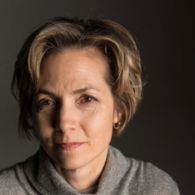
Vicki’s Glioblastoma Story
September 2019
When Vicki was diagnosed with glioblastoma multiforme (GBM) nearly nine-years ago, very little research existed on this aggressive cancer of the brain. Doctors gave her 12-14 months to live, which is common for patients with GBM. Since being diagnosed, Vicki’s read up on all available GBM information that she can get her hands on and spoken with as many people as possible. It’s how she came to find out that no further research would be conducted in New Zealand.
That’s why in 2016, she was overjoyed to see that a research team thousands of miles away was making breakthroughs at the JGH’s Lady Davis Institute (LDI). A research team led by Dr. Arezu Jahani-Asl made a world-renowned discovery by identifying a protein responsible for the growth of brain tumours. It found that the tumors, known as glioblastomas, can only form if a particular protein is present.
For terminally-ill people like Vicki, research is much for than scientific knowledge. It provides hope to patients and their families.
“I cried for hours, knowing that someone cared. Someone did believe. Someone saw me as more than a statistic. Thank you, Dr. Jahani-Asl, for not giving up on us. Thank you for giving us hope.”
Despite the initial prognosis, she’s very much alive today. Vicki herself is a figure of hope, defying the odds and creating a support group for terminally-ill people. Her plan this year? To to continue being awesome!
Dr. Jahani-Asl is now developing antibodies and small molecules to inhibit the OSMR protein or its interaction with EGFRvIII—a step toward the ultimate goal of finding ways to treat these tumors
Like Vicki, the JGH Foundation is grateful for donors, who make breakthroughs possible. Donors like you play an essential role in the progress of research. You help create resources, facilitate access to equipment, and give access to more screenings. You, too, are a source of hope for patients!
View More
Amy’s Story
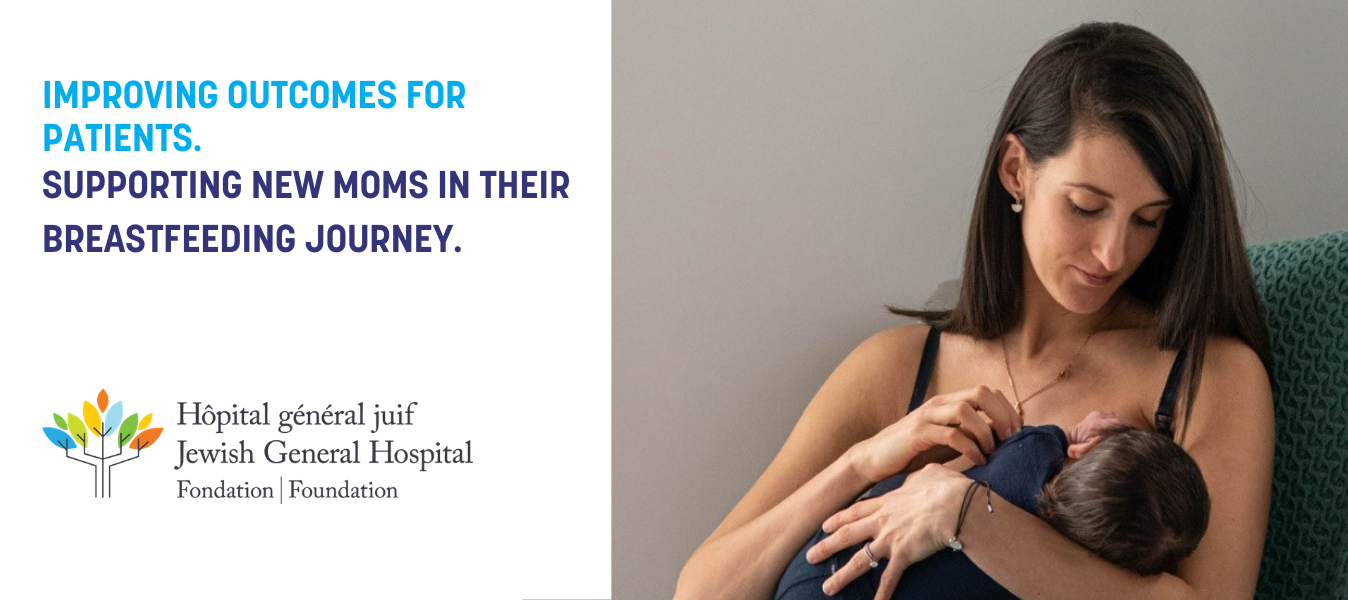
HERE'S AMY'S STORY
"From the day I got pregnant, I knew I wanted to breastfeed my son. I'd read the books, taken the classes, and understood just how beneficial it was. I saw it as the most natural, beautiful, and womanly aspect of motherhood.
After his birth, I left the hospital exhilarated and determined to (FOR OVERFLOW) make breastfeeding work. Bringing home my healthy baby boy was the greatest joy of my life, and my husband and I relished every second as new parents. I meticulously tracked every feeding and every diaper and enthusiastically offered my breast at the first sign of hunger.
Then, suddenly, one night, it began. Every time my baby would latch on, I would experience searing pain. I would sit there trying to apply the breathing techniques I'd learned for labour to get through each session until it got too intense and I would have to pull him off. Between the guilt and the sleep deprivation, I admit that my conviction and confidence wavered.
Could I do this? Was I already failing as a mom? Would my baby suffer because of me?
View More
André Charron’ s Story
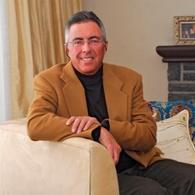
Although it has been almost a decade since Andre Charron's father lost his life to Alzheimer's disease, thinking back on everything he saw him go through still breaks his heart.
"No one is prepared to see their parents slowly forget who they are. Or the challenges, both emotional and financial, that come with caring for a loved one with Alzheimer's," said Andre.
September is the month for remembering those faced with an illness we often forget. World Alzheimer's Month is a reminder to us all that Dementia knows no social, economic or geographical boundaries. In fact, every 3 seconds someone in the world develops it.
"Like millions of others who have had Alzheimer's in their family, I wonder about the genetic links of this disease," added Andre. "Am I more susceptible? Can I do anything to prevent it?"
Thankfully, nearly 1,000 patients receive treatment, support and advice at the JGH every year.
"After my dad was diagnosed, he was followed at The Anna & Louis Goldfarb JGH/McGill Memory Clinic. I saw firsthand the unparalleled expertise in diagnosing, treating and caring for patients with memory disorders and dementia."
A recognized leader in its field in Canada, the Clinic is led by some of the best researchers and doctors in the world. There, experts like Dr. Ruby Friedman Site Director of the Division of Geriatric Medicine, estimates that 160,000 Quebecers will have Alzheimer's by the year 2030.
"I'm sure that this is the disease 99% of the population is most afraid of. That's why accelerating research is more important today than ever before," said Dr. Friedman. "But, the JGH is ready for the challenge."
"For the last twenty-five years, the JGH has had the infrastructure and foresight to develop research protocols which enable more efficient diagnosis and ensure proper symptom management efforts are undertaken."
Share this story today! Help raise awareness for #WorldAlzMonth
View More
Lundbeck Canada Inc.
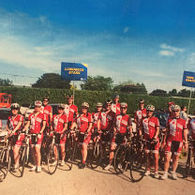
Committed to giving hope to cancer patients
The Enbridge Ride to Conquer Cancer, now in its 8th year as Quebec's largest cycling fundraiser, showcases the tremendous value and power of the enduring partnerships that the JGH Foundation enjoys with deeply committed corporate citizens such as Lundbeck Canada. Lundbeck Canada is a subsidiary of H. Lundbeck A/S, an international research-based pharmaceutical company focused on brain diseases and oncology that is celebrating its 100th year of existence. Based in Montreal, Lundbeck Canada has been active in the Canadian pharmaceutical industry for two decades now, marketing products for the treatment of depression, anxiety, Alzheimer's disease, schizophrenia, bipolar disorders, chronic lymphocytic leukemia, non-Hodgkin lymphoma, and acute promyelocytic leukemia.
Lundbeck Canada has participated in the Enbridge Ride to Conquer Cancer for the past five years, and was also a sponsor of the JGH Foundation's 1st Annual Mindstrong Fitness Event (benefiting mental health services for youth) last year. This year, the company decided to step up its commitment in support of life-saving cancer research, treatment and care programs at the Jewish General Hospital and other cancer centres across the province by fielding a team of 10 cyclists and making their largest financial contribution to the Ride to-date.
"The main reason why we got involved in the Ride to Conquer Cancer is to help give hope to cancer patients and their loved ones, and let them know they are not alone in this fight," emphasizes Marcel Chenard, Head of Oncology Business Unit at Lundbeck Canada. "We take things for granted in life and we all know people who have been affected by this terrible disease. Riding over 200 kilometres over 2 days and raising money for this great cause is nothing compared to what people have to go through when they are diagnosed with cancer."
"By partnering with an innovative centre such as the Segal Cancer Centre, which is ahead of the game and the best in their class, we felt we could make the biggest impact," adds Mr. Chenard. "Our employees are committed to supporting this important initiative and we intend to keep riding for cancer in an effort to challenge the status quo, because Quebecers and Canadians living with cancer deserve better."
"Lundbeck Canada is a valued partner in the fight against cancer, and is setting an example for all corporations through their determination to make a difference by raising funds for research that will lead to better treatments and outcomes for patients," concurs JGH Foundation President and CEO, Myer Bick. "We are committed to providing opportunities like the Ride to Conquer Cancer for local and national corporations to play an important role in ensuring the continued health and well-being of our community."
View More
PROVIDING CANCER PATIENTS WITH A NEW LEASE ON LIFE

At just 38 years old I was diagnosed with breast cancer and began treatment at the Jewish General Hospital. My father had just lost his battle to cancer that year and I was devastated, to say the least when I got the news.
But, luckily, I had hope.
Thanks to research, a new technique known as sentinel node mapping permitted my doctors to detect which lymph node cancer cells were spreading from. They were able to localize the lymph nodes which were problematic and extract them.
My initial treatment was successful, but in 2006 cancer came back.
In the years between my first and second diagnoses, a gene mutation now known as HER2 – a growth-promoting protein on the outside of all breast cells - was discovered. I was diagnosed with HER2-positive and was given a specific treatment.
What most people don't know is that there are various types of breast cancers and may require a specific treatment plan. It isn't one-size-fits-all. Research saves lives like mine.
If I didn't know I was HER2-positive I probably wouldn't be here today.
Dr. Mark Basik, Researcher at the Lady Davis Institute and Assistant Professor at the Department of Surgery and Oncology of McGill University, is working on life-saving research right now. Dr.Basik and his team aim to bridge the gap between basic and clinical research for the benefit of cancer patients through translational-cancer research by specifically focusing on drug resistance.
Supporting research like Dr. Basik's is vital. I am proof that the JGH makes wonders happen and I am determined to do my part to spread the word. Together, we can make this happen. Will you join me? Give to Dr. Basik's research today and give all types of cancer patients a new lease on life.
Donate here
View More
Pablo’s story
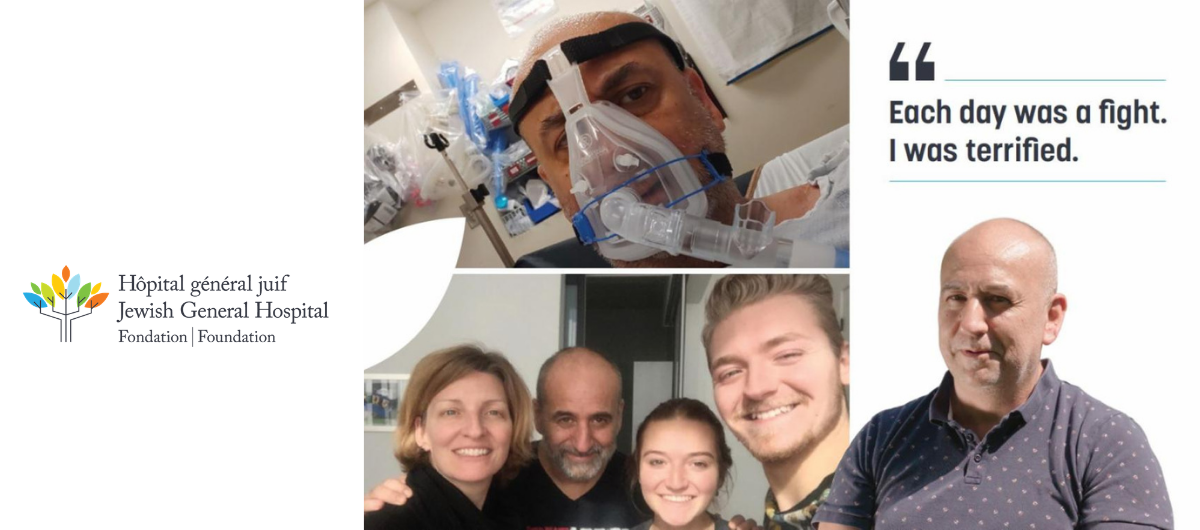
When I arrived home after my 21-day at the JGH stay, the world was not the same. I speak of course of my surprise at seeing the empty streets, but also of my new vision of life. A vision that has certainly been modified by suffering, the unknown, the acknowledgment of how close I was to die, but above all by your actions.
My post-COVID has shattered great paradigms for me: on the definition of intensive care (9th floor) and post-intensive care recovery (6th and 5th?). I thought these two units were focused on aspects related to the recovery of the patient's physical and mental health. But in my case, these two units were an inspiration that took hold in my mind fueling the desire to fight – thanks to the incredibly empathetic front-liners always there with a smile. Generous nurses who manage to calm you down when you most need it. When there are tears, they are there to cheer you up, every second, every day. And then there were the doctors who fought hard to combat the virus while demonstrating a rarely seen humanism. This instills an incredible trust from the patient because they tell you the hard truth, but at the same time extend their hand to you like a coach who makes you want to follow, to fight for him or her.
And then there was my opinion of the healthcare system in Quebec which has been turned upside down. I was very critical before my experience, but the system responded brilliantly for me in a total storm.
I wish I could write down the names of all the people who were instrumental in my survival (intensive care and 5th-floor recovery +++), but my memory played tricks on me during my recovery days. So if you see my photo and recognize me, please know that I am forever indebted to you because I am able to kiss my children and my wife every day. I will keep you in my heart forever and I run through your faces in my memory at night as a way of saying thank you in silence.
Thank you from the bottom of my heart.
Pablo Gray - COVID-19 patient number 7
View More
Newly Expanded CETAC Opens
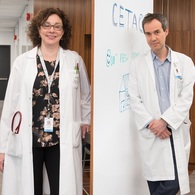
Jewish General Hospital celebrates the opening of its newly expanded Center of Excellence in Thrombosis and Anticoagulation Care, made possible by the outstanding support of Sanofi Canada
Centre will provide best in class patient care, research and training for the prevention of blood clots and anticoagulation safety
Montreal, Quebec - May 9, 2018 –The Jewish General Hospital today announced the opening of its newly expanded Centre of Excellence in Thrombosis and Anticoagulation Care (CETAC). This new Centre is setting the stage for enhanced awareness, prevention, research, training, diagnosis and treatment of thrombosis and its associated complications, not only at the JGH but across the Quebec health care system.
The Centre's mandate is to provide leadership and guidance to other institutions and agencies in Quebec to support initiatives in thrombosis prevention and treatment. Funding of the Centre was made possible through the JGH Foundation and from Sanofi Canada.
“Thanks to our fruitful partnership with Sanofi Canada and the generous support from the community the newly expanded Centre of Excellence in Thrombosis and Anticoagulation Care will play a vital role in lessening thrombosis-related mortality, morbidity and socioeconomic burden not only at the JGH but throughout the Quebec healthcare system," said Dr. Susan Kahn, Director of CETAC.
The establishment of the CETAC in a dedicated and expanded facility will allow for streamlined care delivery, improved workflow and strengthened research collaboration. Concerted attention to clinical care, education and research in anticoagulation safety will improve the health of the many patients at the JGH who need to take blood thinner medications. Located on the third floor of Pavilion B, the new, expanded CETAC regroups all clinical, training and research activities in a single, dedicated location.
“Sanofi is proud to support the Centre of Excellence in Thrombosis and Anticoagulation Care (CETAC) at the Jewish General Hospital as part of our commitment to investing in initiatives that empower the lives of Canadians. It is an important priority for Sanofi to contribute to patient education and our goal is to help patients and their families when it matters the most," said Paul-François Cossa, General Manager of General Medicines and Established Products, Sanofi Canada.
Prevention and awareness key to saving lives
“Venous thromboembolism (VTE) is the third most common cardiovascular condition after heart attack and stroke, with one in four Canadians who die from causes related to blot clots," says Dr. Susan Kahn, Director of CETAC. “In addition, VTE causes more deaths each year than breast cancer, HIV and motor vehicle accidents combined. These complications are serious health issues, which must be addressed in an organized fashion in a state-of-the-art facility, where we can work towards prevention, patient awareness and in turn, saving lives."
“Without a dedicated facility, nor the funding, patients were spilling in the corridors due to the insufficient number of exam rooms and waiting areas," recalls Dr. Blostein, Associate Chief of the JGH Division of Hematology and Oncology, and Senior Investigator at the Lady Davis Institute (LDI). “We didn't have the room to hire an anticoagulant pharmacist, nor to train physicians (fellows) and graduate students. Our clinical team, our researchers and even our services were scattered throughout the hospital. Now all of that has changed thanks to this newly expanded Centre."
VTE prevention protocol among first in Canada
The JGH was among the first in Canada to develop a hospital-wide protocol to determine which patients are at risk for VTE and which preventive methods should be applied. Since 1998, the JGH has built a unique, multidisciplinary Thrombosis Program with patient care, training, education and internationally recognized research components that are unparalleled in Quebec and among the top three programs in Canada. “We have been trailblazers in developing VTE prevention protocols and anticoagulation guidelines at the national and international level," confirms Dr. Kahn, Founder and Director of the CETAC.
“We are now in a position to expand our clinical activities and increase our recruitment of patients in thrombosis studies," declares Dr. Kahn. “The added space will also allow us to measure outcomes via patient satisfaction surveys and other means. These are critical to assess which pharmacologic and non-pharmacologic measures actually diminish the risk of Deep Vein Thrombosis (DVT) and Pulmonary Embolism (PE), and to the continuous improvement of our interventions."
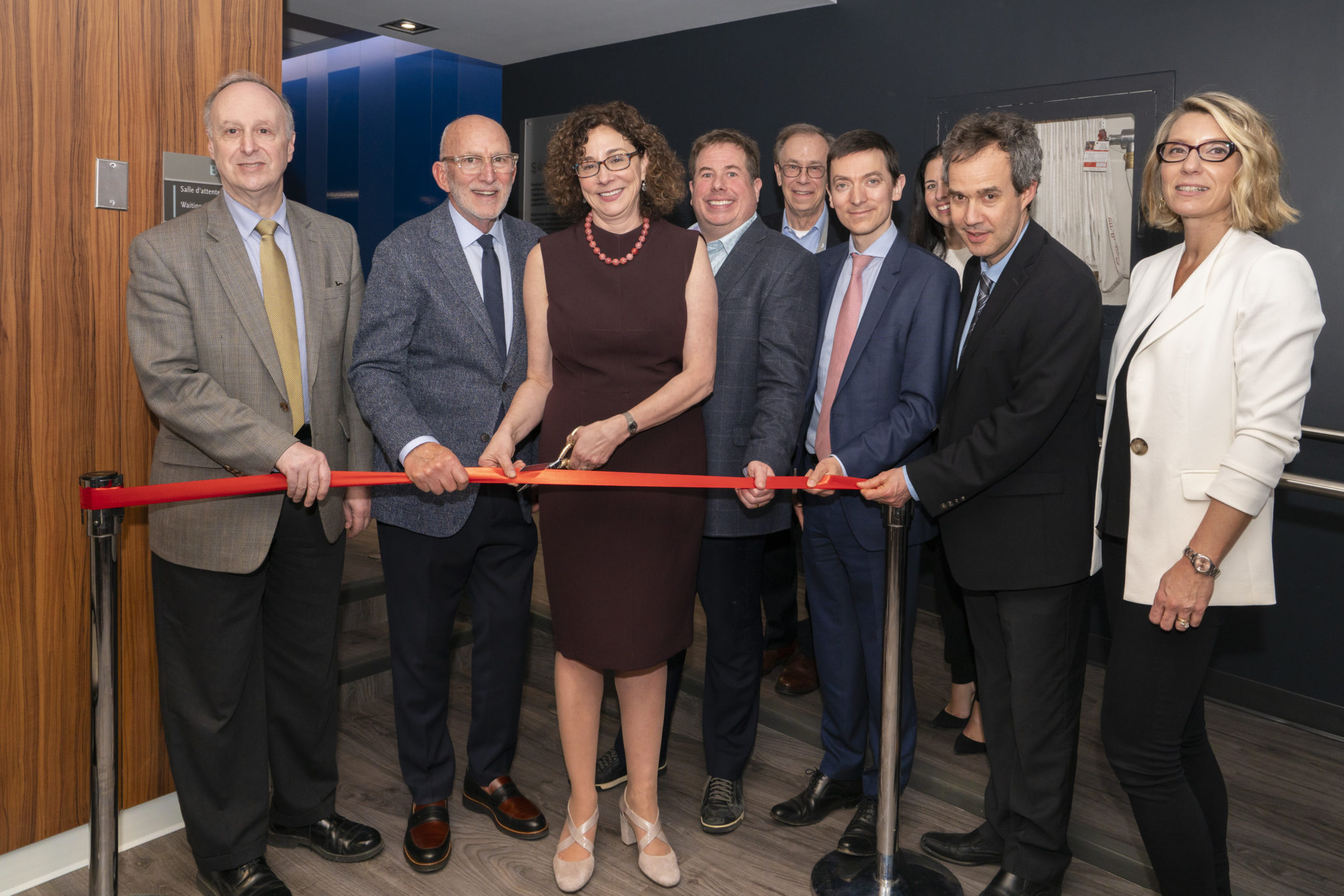
View More
André B. Charron

Upholding the memory and life of a loving father
André B. Charron, a vice-president and portfolio manager who lost his father to Alzheimer's disease (AD) in 2011, has made it his mission to help support research aimed at finding the cause of this disease in any way he can. “How can we expect to cure Alzheimer's or even treat it adequately as long as we don't know what causes it in the first place?" says André. “I find it unacceptable that in this day and age we still know almost nothing about this horrendous disease"
His father's first symptoms appeared sometime in 2002-2003, but he wasn't diagnosed with AD until 2008. As his condition gradually worsened, the family found it harder and harder to take proper care of him at home and had to make the heart wrenching decision to place him in a specialized centre in 2009. His stay there was punctuated by many falls and mishaps which required frequent nightly visits to the ER at various hospitals. It is during one such emergency that André came to discover and appreciate the quality of care provided at the JGH and by its compassionate staff, and it is at the JGH that his father ultimately lived the final month of his life.
When the opportunity presented itself to help out the JGH and get involved in the fight against Alzheimer's disease, André did not hesitate. “I was keen on supporting a research and support program that is well-established and recognized internationally for its excellence," says André. “I was won over by the innovative work done at the Anna & Louis Goldfarb JGH/McGill Memory Clinic and by the quality and scope of the research on Alzheimer's disease carried out by Dr. Howard Chertkow and his team (and in particular, Dr Andrea LeBlanc) at the Bloomfield Centre for Research on Aging of the Lady Davis Institute."
The Charron family also made a generous gift to the Marjorie & Gerald Bronfman Division of Palliative Care, in gratitude for having taken such good care of their beloved father in his final days. Furthermore, André has now taken a leadership role by agreeing to become one the vice-chairs of the JGH Foundation's current $250 million capital campaign. “My father was very generous and supported many worthwhile causes during his life," says André. “Alzheimer's disease may have robbed him of his memories, his personality and his ability to function as a person, but his legacy remains. I am proud to walk in his footsteps and to have the opportunity to perpetuate his memory and life in a meaningful manner through my support of the JGH. He would have wanted that."
View More
Susan O’Brien, MD
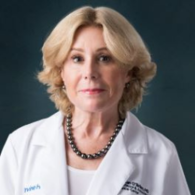
Susan O'Brien, MD is the associate director for Clinical Science at the Chao Family Comprehensive Cancer Center, the medical director of the Sue and Ralph Stern Center for Cancer Clinical Trials and Research, Professor of Medicine in the Department of Hematology and Oncology and the endowed chair of Cancer Clinical Science at University of California, Irvine. She earned her medical degree from and completed her residency in Internal Medicine at the University of Medicine and Dentistry of New Jersey (currently known as the Rutgers School of Biomedical and Health Sciences). She completed her fellowship at the University of Texas MD Anderson Cancer Center in Houston, TX where she spent over 30 years of her career advancing science in cancer, specifically in the field of leukemia.
Dr. O'Brien has been a principal investigator and driving force behind more than 40 funded clinical research protocols, 30 invited articles, numerous book chapters and abstracts, and has authored more than 800 articles in peer-reviewed journals. She is currently the hematology executive officer for SWOG (formerly known as the Southwest Oncology Group Executive Committee) and the hematology editor for the journal Cancer. She serves on the Medical Scientific Advisory Board and the Technology Acceleration Program Committee for the Leukemia & Lymphoma Society. Year after year, she is featured and ranked nationally at the top in her field by America's Top Doctors, Super Doctors, and America's Top Doctors for Cancer. Most notably she is the President-Elect of the Society of Hematologic Oncology (SOHO) and has been named the 2020 Giant of Cancer Care in Leukemia.
View More
Hagop M. Kantarjian, MD
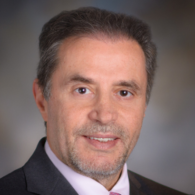
Hagop M. Kantarjian, MD
Professor and Chair, Department of Leukemia
Samsung Distinguished Leukemia Chair in Cancer Medicine
The University of Texas
MD Anderson Cancer Center
Houston, TX
Hagop M. Kantarjian, MD, is a professor and chair of the Department of Leukemia at The University of Texas MD Anderson Cancer Center in Houston, TX. Also, he is the Samsung Distinguished Leukemia Chair in Cancer Medicine and a Special Fellow on Healthcare Policies at the Rice University Baker Institute in Houston, TX and advocates for healthcare issues pertinent to patients with cancer and leukemia.
Dr. Kantarjian's research focuses on translational-clinical developmental therapeutics in leukemia. In the past 3 decades, he has made several contributions that improved the prognosis and survival in patients with chronic myeloid leukemia (tyrosine kinase inhibitors, eg, imatinib, dasatinib, nilotinib, bosutinib, ponatinib which improved the 10-year survival from 20% to 90%), in acute lymphocytic leukemia (H-CVAD regimen and its derivatives; antibodies including blinatumomab and inotuzumab), the discovery of decitabine for the treatment of myelodysplastic syndrome, and of clofarabine for the treatment of leukemias, among others. His research and collaborations were the basis for the FDA approvals of several drugs in leukemia.
Dr. Kantarjian has received several prestigious honours and awards, including the 37th Jeffrey A Gottlieb Memorial Award, the John Mendelsohn Lifetime Scientific Achievement Award, the ASCO Joseph H. Burchenal Memorial Award, the Charles A. LeMaistre, M.D. Outstanding Achievement Award in Cancer, and America's Top Doctors, Castle Connolly Medical award. He was also selected the top Castle Connolly National Physician of the Year Award for Lifetime Achievement. He has authored more than 2000 peer-reviewed publications.
View More






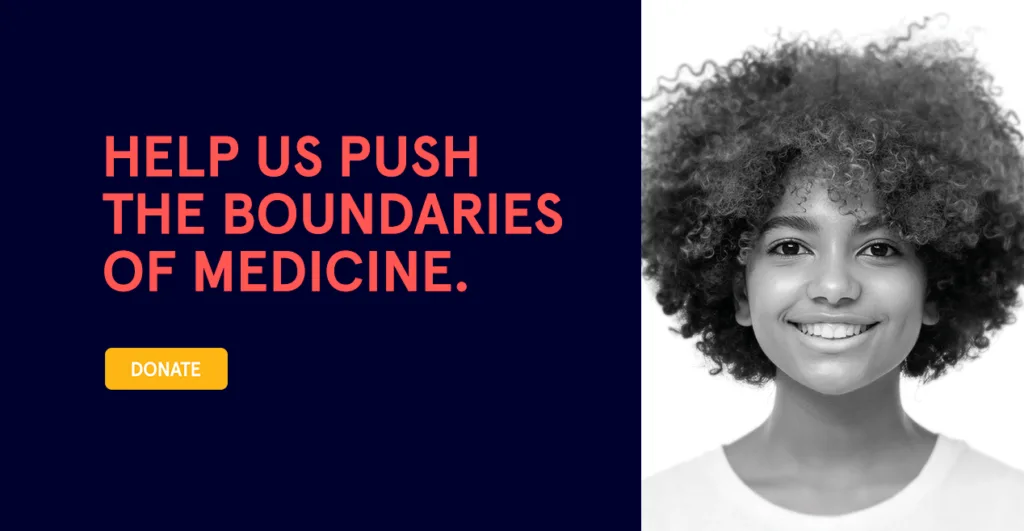
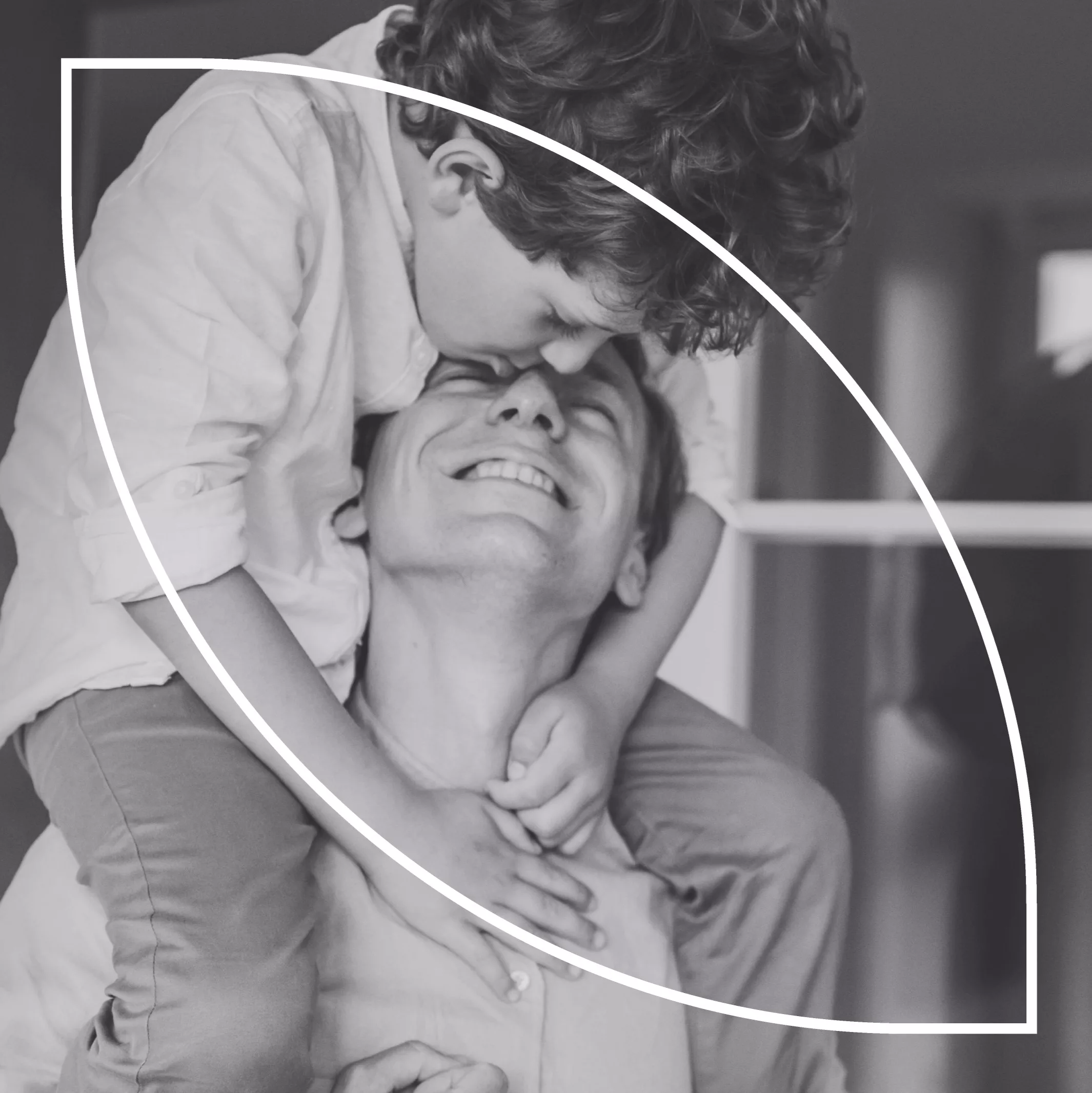 Donors are transforming healthcare at the JGH. We’ll show you how.
Donors are transforming healthcare at the JGH. We’ll show you how.